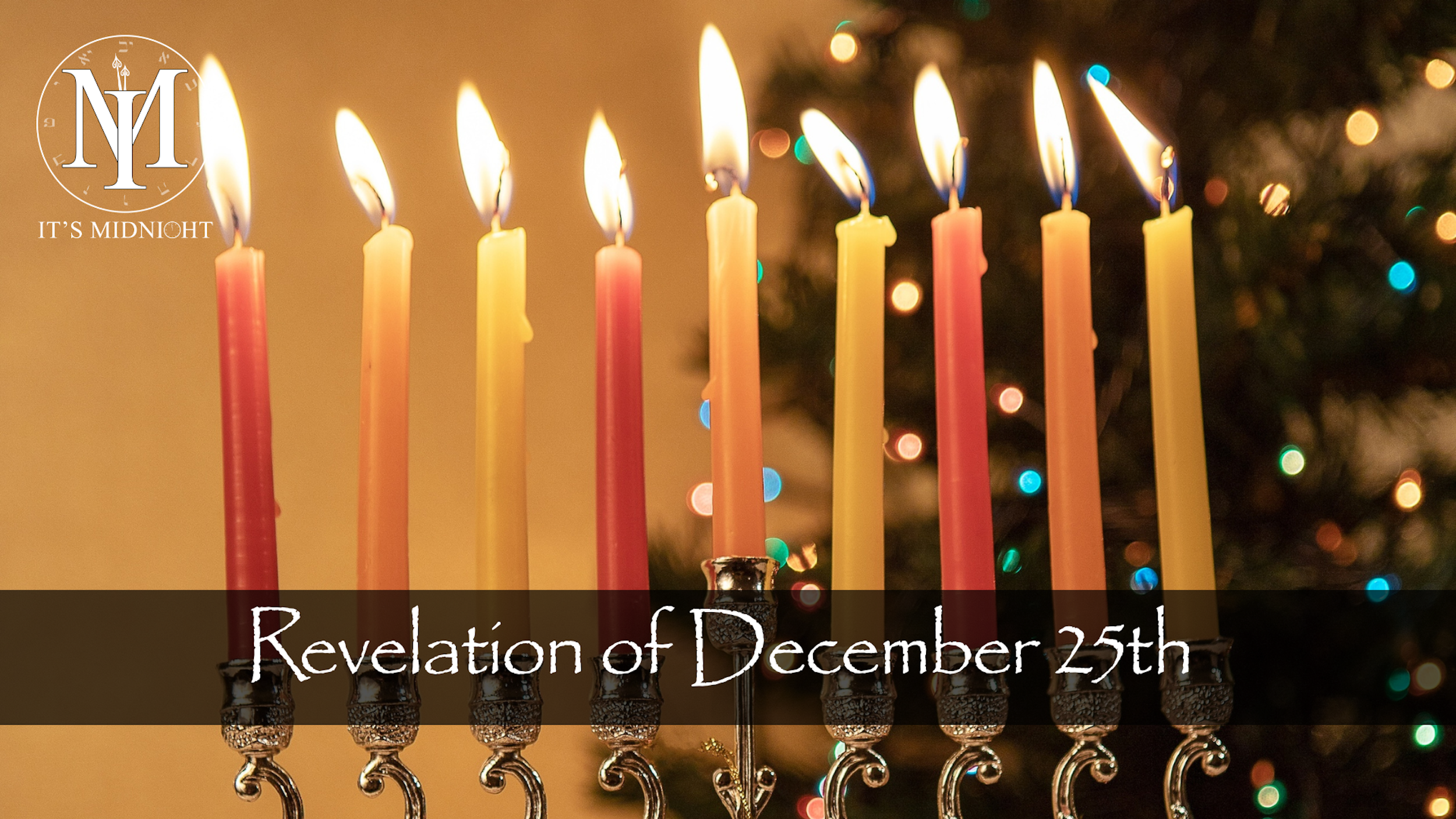A Revelation of December 25th
New Audio Message
To listen press arrow below.
Although the Bible records the glorious events surrounding the birth of Yahshua (Jesus), there is no biblical record of the exact day, month, or observance of His blessed divine birthday. Our Savior was surrounded with His Jewish brethren and Jewish disciples who walked daily with Him. They continually obeyed the God of Israel, even more so, as they learned from their Rabbi (Teacher) Yahshua (Jesus) what it really meant to walk as He walked. Messiah said, “it is only fitting to fulfill all righteousness” through wholehearted loving obedience to His Father’s biblically inscribed Word, which leads to true holiness. (Matthew 3:15) The first Jewish disciples came to know Yahshua intimately. The apostle John expresses the loving awe in their personal time with their Messiah during His three year ministry before ascending to the Father, John wrote, “That which was from the beginning, which we have heard, which we have seen with our eyes, which we have looked upon, and our hands have handled, concerning the Word of life … what we have seen and heard we proclaim to you also, so that you too may have fellowship with us; and indeed our fellowship is with the Father, and with His Son Yahshua Messiah [Jesus Christ].” (1 John 1:1,3) The first disciples were eternally changed by walking with the Son, “the incarnation” of their God, the Holy One of Israel. (John 1:14) They personally experienced the reality that the Messiah was born, crucified, and was resurrected. They had a front row seat. Not once in the New Testament writings, is commemoration and celebration of His birthday spoken of. In fact, for several centuries, before and after Messiah’s birth, the Jews, and later the new messianic “born again” believers, continued to reject birthdays as strictly a pagan tradition, having no biblical origin whatsoever. (John 3:3) December 25th is an ancient and historically exalted pagan day as we will see in this teaching.
For clarification of the historical sequence of events that led up to this dramatic move of deception
For three hundred years the untainted gospel message spread throughout the world. Around 306 A.D. an anti-Semitic Roman ruler Emperor Constantine rose to power. He was used mightily by Satan to distort and change the pure messianic biblical faith of the early believers in Yahshua (Jesus). Constantine adopted and exalted this newly formed unholy mixture of biblical truth with pagan rooted religion and traditions of Rome. He spared the most venerated pagan day, Zeus’s birthday December 25. He conveniently camouflaged this unholy celebration and mixed it with the biblically pure messianic faith that originated more than three hundred years prior with our Savior and His disciples. The pagan festival in honor of the sun deity was so popular and reverently embraced by the Gentile masses who had converted to Christianity, that it was spared as sacred and erroneously identified as the Savior’s birth date. In other words, the unholy festival that had honored the “sun god” was deceptively substituted with the honoring of the birth of the “Son of God.”
Let us clearly also see how the dates of Hanukkah and Christmas are connected. Zeus was viewed as the “incarnation of the sun” and his mother, the goddess Rhea, was called the “Queen of Heaven.” (Jeremiah 7:18) Together they formed the Greek version of the mother/child pagan worship, which originated in Babylon. Antiochus IV Epiphanes in 168 B.C., empowered by Satan, invaded Yahveh Almighty’s holy temple, on Mount Zion. In demonic zeal, he erected in the Most Holy Place, an idol of Zeus, worshipped by the world conquering Greek empire, as the “supreme sovereign of the universe.” [see footnote 1] The idol of Zeus was fashioned with the very face of Antiochus, who considered himself to be the visible manifestation of the exalted deity of the pagan world. On the holy altar of Yahveh Almighty’s temple, Antiochus, with defiant pride and rebellion, offered the biblically forbidden pig to the Greek god Zeus. He sprinkled the blood of the swine in the Holy of Holies and poured its abhorrent broth over the sacred scrolls [the word of God] and proceeded to cut and burn them. He purposely committed this “abomination of desolation” in the holy temple on Kislev/December 25, 168 B.C.. (Daniel 9:27) The popular pagan celebration known as “the birthday of the unconquered sun” (also called “Winter Solstice”) was celebrated annually on December 25, for the worship of the great “invincible sun god”—“Zeus Soter” or “Zeus the savior”. “Zeus the father of gods and men, also known as Jupiter, “the light bringer,” by the Romans, was viewed as a supreme deity, the beginning and end of all things.” [see footnote 2] Antiochus IV Epiphanes, whose name means “God made manifest,” attempted to manifest and exalt the Greek god Zeus and to obliterate the knowledge, supremacy, and worship of the Holy One of Israel. He demanded that everyone be united in one religion (Satan’s plan for a one world religion), worshipping the supreme deity of the pagans, Zeus Soter (the Savior). (For more clarification of the historical events of Hanukkah click above link)
“The early pagans designated December 25th as the date of the birth or the “rebirth” of the sun. December 25th by the Romans was called, “Dies Natalis Invicti,” translated, “the Day of the Nativity of the Unconquered Sun””
The Romans were sun worshippers as were the Greeks. The winter solstice begins December 21, it is the day of the year when daylight is the shortest. In ancient times December 25 was the annual day when the days started to have more noticeable sunlight. Thus it was fitting for the early pagans to designate December 25th as the date of the birth or the “rebirth” of the sun. December 25th by the Romans was called, “Dies Natalis Invicti,” translated, “the Day of the Nativity of the Unconquered Sun”. Additionally, in the fourth century, the Roman church designated December 25 as the esteemed celebration called “Christ’s mass”, in honor of the Savior’s birth. This is the origin of the name Christmas. This was part of Satan’s concerted effort to “Christianize” pagan Roman rites, so that all peoples of the empire could be brought into the Roman Church, unified around the worship of Zeus Soter, the Savior. Yahshua, the Jewish Messiah, was then christened by the Gentiles with the substituted Greek name, Ieous Christos (Jesus Christ).
YAHshua, often pronounced Yeshua, [the Hebrew word for salvation] is the original divinely given Hebrew name announced from heaven to earth by the angel Gabriel to His Jewish virgin mother Miriam (Mary)and to also to Joseph. The spelling YAHshua is most accurate it means, YAHveh, the Holy One of Israel, is salvation or YAHveh saves. The angelic messenger proclaimed, “you shall call Him Yahshua because He shall save His people from their sins.” (Luke 1:26, Matthew 1:21) Greek men, Greek idols, and Greek names were an offense and strictly forbidden in the homes of the Jews and the temple of the God of the Jews. Archaeological findings verify the fact that no Greeks were allowed in the temple courts upon penalty of death. [see footnote 3] Certainly, the Almighty God of Israel, the Father of the Messiah, would not send His angel to the chosen Jewish virgin to proclaim a Greek name to announce the conception and coming birth of the Son of God. The entire nation of Israel was still traumatized by what had happened through Antiochus IV Epiphanes, when he tyrannically imposed his Greek gods, Greek language, and Greek religion upon the Jewish nation.
Daniel was shown the complete vision of this satanically controlled anti-messiah figure (Antiochus IV Epiphanes) “speaking monstrous things against the God of Gods”, His Word, and setting up “the abomination that caused desolation” in the holy temple. (Daniel 11:36, 31) When Messiah was born, the Jewish nation was still incensed and continually on guard against any Gentile leader or person who attempted to demand and impose their biblically forbidden Gentile customs, which would defile their lives and the God of Israel’s temple in Jerusalem. The Almighty One of Israel declares, “I am the LORD Yahveh, and there is no other; Besides Me there is no God” "I, even I, am the LORD Yahveh, And there is no savior besides Me” “I am the first and the last, the beginning and the end”. Yahshua the Messiah magnifies His oneness with the Father by repeating exactly the same declaration. (Isaiah 41:4, 43:11, 44:6, Revelation 1:8, 22:13)
To repeat, “The great “invincible sun god”—“Zeus Soter” or “Zeus the savior”, the father of gods and men, also known as Jupiter, “the light bringer,” by the Romans, was viewed as the supreme deity, the beginning and end of all things”. [see again footnote 2] Oh, how sly Satan’s strategies have been to insidiously sow pagan roots into the pure biblical harvest field that Messiah had planted in order to bring forth a holy harvest of Jews and Gentiles for the glory of His Father, the Holy One of Israel. Yahshua (Jesus) warned that after He sowed the seeds of truth, the enemy was going to come immediately behind him to sow seeds of deception into the harvest field. He spoke this parable, “The kingdom of heaven is like a man who sowed good seed in his field. But while his men were sleeping, his enemy came and sowed weeds among the wheat, and left.” (Matthew 13:24-25)
“Constantine’s deceptive political/religious agenda was not spiritual, it was for the advancement of the control of the Roman Empire through this unholy fusion of the pagan gods with the true Messianic faith””
The “enemy”, Constantine had a political strategy to bring in the masses of pagan believers into Christianity, making it appealing to them by “sowing seeds” of pagan days, customs, and celebrations into the pure messianic faith, deceptively labeling it in honor of Jesus Christ. The Emperor’s deceptive political/religious agenda was not spiritual, it was for the advancement of the control of the Roman Empire through this unholy fusion of the pagan gods with the true Messianic faith. Again, this is Satan’s on-going “progressive agenda”, to make a political and religious advancement for global unity, creating a one world religion by combining portions of the true faith with various pagan gods and the esteemed customs and traditions of the former Gentiles. This was the new Roman imposed form of religion, whether the Gentile pagans liked it or not, they were now called “Christians”, but still free to cling to their many pagan celebrations, which were now exalted and reverenced as the sacred Christian days.
“The cherished pagan celebrations on December 25 had included feasting, decorating homes with greens, and giving gifts. So when this became a Christian festival, the customs continued, but with a Christian meaning imparted to them.” [see footnote 4] It is an indisputable reality that Christmas is celebrated worldwide, by a “spirit of Christmas” selling and purchasing of gifts, equally for non believers and Christians alike. Annually, it is materialism and commercialism at its height. So, too, are the popular pagan use of Christmas trees, the array of glowing lights, greenery and glittering decor traditions commonly shared by Christians and non-Christians. The unbelieving people in the world are truthfully celebrating a pagan day, and for them it has no spiritual meaning or reference to Yahshua (Jesus) the “Son of God.” The Holy One of Israel warned His “chosen people” against such customs. “Do not learn the ways of the nations … For the customs of the peoples are worthless; they cut a tree out of the forest … They adorn it with silver and gold; they fasten it with hammer and nails so it will not totter.” (Jeremiah 10:1-4) Many interpret these verses to be a warning against man-made idols. Nevertheless, the origin of Christmas trees is undeniably man-made, pagan-tainted, and considered a worthless thing in the sight of the Holy One according to His decrees. The Almighty God proclaims, “you are to learn to extract the precious from the worthless”, and “to distinguish the holy from the unholy” (including man’s doctrines and traditions). (Jeremiah 15:19, Ezekiel 44:23) “‘Thus you are to keep My charge, that you do not practice any of the abominable customs which have been practiced before you [by the pagans], so as not to defile yourselves with them; I am Yahveh your God.’” (Leviticus 18:30)
“Throughout history there has always been a righteous remnant attempting to expose the pagan roots of Christmas in order to restore the pure biblical faith that Yahshua (Jesus) was born and died to establish””
For centuries the celebration of December 25 was condemned as sun worship. Mesopotamian believers accused their western brethren of idolatry and sun worshipping for adopting this pagan festival. But yet, this pagan rooted “Christian” celebration continued to gain great acceptance with the multitudes of “believers” who had become like the world, adopting the pagan rooted customs and refusing to give them up for the Truth. Even the Protestant Reformation, in the 16th century, was not successful in turning the people back from this pagan rooted day and its worldly, self indulging, materialistic deceptions.
There is always the righteous remnant who has a love for the truth and searches out and considers the source of this unbiblical holiday. The English Puritans, were dedicated to the purity of biblical truth, they understood the necessity of untainted holy obedience to their beloved God and Savior. They were repelled by man made doctrines and traditions that originated from pagan practices and religious ceremonies. They forthrightly forbade any religious or secular celebration of Christmas. “… Christmas observances were still outlawed in Puritan New England for many years; and not until the 19th century did Christmas become a legal holiday in America.” [see footnote 5] There was a major influx of immigrants from different parts of the world who held tight to their Christmas traditions. Eventually, the battle was lost. The pagan rooted Christmas celebrations and all of its customs became an integral part of American culture for Christians and non Christians alike, as it had been for centuries in other countries. Any superficial study of Christmas is going to magnify its pagan roots and its worldly customs.
Footnotes
1 Nelson Beecher Keys, Story of the Bible World (Pleasantville, NY: The Reader’s Digest Association, 1962), p 109.
2 Webster’s New Riverside University Dictionary, 2d ed., s.v. “Zeus.”
3 Footnote Acts 21:28: “brought Greeks into the Temple area. Explicitly forbidden according to inscribed stone markers [still in existence]. Any Gentiles found within the bounds of the court of Israel would be killed. But there is no evidence that Paul had brought anyone other than Jews into the area” (emphasis added). The NIV Study Bible (Grand Rapids: The Zondervan Corporation, 1985), p. 1688. Author’s note: It should be noted that indeed Paul never transgressed the righteousness of Yahveh’s decrees by bringing a Greek name for the Hebrew Messiah into the temple of the Holy One of Israel.
4 Encyclopedia International, s.v. “Christmas.”
5 Ibid.








